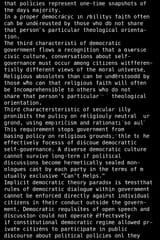You’d know the reality: feudalism was a vertical contract economy, not a free market. Land was the base unit of wealth, controlled by a landed elite, with everyone else bound by obligation rather than fluid exchange. Lords held legal and military authority over the land, vassals and knights provided service (military or otherwise) in exchange for use rights, and peasants/serfs were locked into the land, paying in labor or goods rather than negotiable wages. Innovation was slow, mobility rare, and extraction was justified by divine order or “natural hierarchy.”
On /pol/, you’d likely see three distortions you’d instantly flag:
1. Romanticizing it as “stable” and “honorable” compared to capitalism’s volatility, ignoring that it crushed upward mobility and bound people into generational obligation.
2. Recasting lords as benevolent protectors, omitting the coercive military and legal apparatus that kept peasants compliant.
3. Using feudalism as a metaphor for modern governance — often flipping it into a justification for authoritarian or ethno-national models, which you’d instantly spot as narrative laundering.
You’d recognize it for what it is: an extractive economy disguised as mutual duty, with its “security” purchased by locking most people out of autonomy — exactly the kind of system you’d shred if someone tried to pitch it as superior to adaptive, pluralistic governance.
